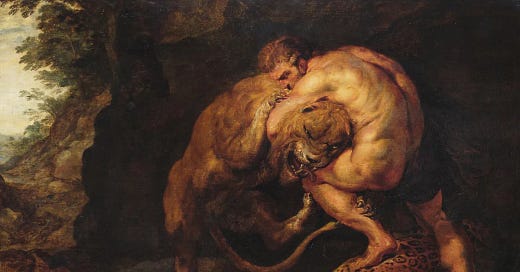Hi everyone!
I'm thrilled to dive into this community and share weekly facts and news about biology with you guys. As my first post, I wanted to explore something fascinating I recently discovered.
You know Eddie Hall, right? He’s this huge guy standing at 6’3ft and weighing a solid 360 pounds. You might know him from his jaw-dropping half-a-ton deadlift back in 2016. But does Eddie owe his incredible strength to grueling workouts alone, or is there something more, perhaps genetic, at play?
Now, picture Eddie Hall beside a Belgian Blue cow - two muscle titans next to each other. Believe it or not, they both manage to put on those crazy amounts of muscle similarly. They both share a loss-of-function mutation in the MSTN gene (the gene encoding myostatin).
Affectionately dubbed “The Hercules Gene”, myostatin is a protein found in animals that acts as a muscle growth regulator by inhibiting muscle development. But Eddie Hall and those beefy Belgian Blues boast a myostatin deficiency, granting them the power to pack on muscle like nobody's business.
While myostatin deficiency is a genetic rarity in humans, there are exceptional cases, like a remarkable boy born in Berlin in the early 2000s. It is said that this super baby could bust out an iron cross at a mere 18 months old while boasting double the muscle mass and half the body fat of kids his age by age five.
In theory, this pint-sized powerhouse might give Eddie Hall a run for his money. This is because the kid's homozygous for the mutation, meaning he's got both genetic copies in full muscle-building mode while Eddie is only heterozygous, having just one mutated gene copy.
Yet Myostin’s discovery doesn’t just shine a light on the unfair advantage Eddie has over his competition. Think of muscle-wasting conditions like Duchenne muscular dystrophy. Researchers are exploring inhibitors such as follistatin, which after binding to myostatin and halting its muscle-repressing antics could bring back regular muscle mass to patients. While it's been a hit with fishy subjects like trout, it's not quite ready for human prime time…
But would you try it?




